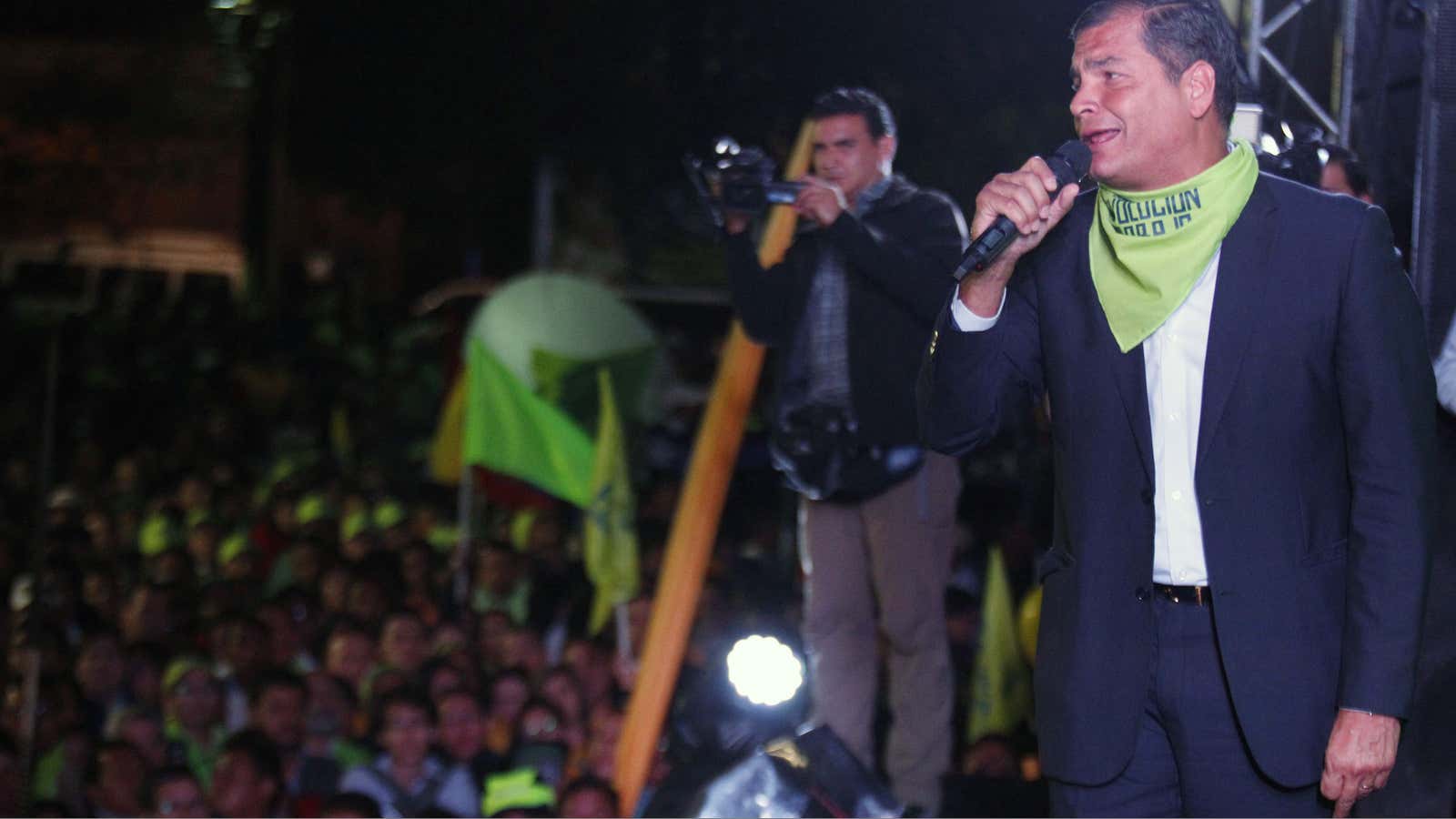This won’t heal strained US-Ecuador relations.
Ecuador is emptying its prisons of convicted drug “mules” in an unprecedented rebuke to what President Rafael Correa has labeled as harsh drug laws imposed by Washington. “Mules” are individuals who are paid-sometimes lucrative sums by drug cartels to smuggle narcotics out of the country. Their destination is usually the US, the largest drug market in the world.
Jorge Paladines, Ecuador’s national coordinator for the Public Defender’s office, told GlobalPost that authorities have freed around 500 mules in recent months and there are plans to release an additional 2,000.
The move comes on the heels of a new criminal law passed in August that identifies mules as “victims” of the drug trade, rather than drug traffickers, and reduces jail sentences of those already serving time.
Under the new law, anyone carrying less than 50 grams (1.8 ounces) of drugs will be sentenced to between three and six months, and an individual smuggling up to two kilograms (4.4 pounds) will receive between one and three years in jail. The harshest punishment—10 to 13 years in jail—is reserved for those smuggling more than five kilograms (11 pounds).
Under the country’s old drug laws, individuals smuggling up to 20 kilograms (44 pounds) were sentenced to between eight and 12 years—regardless of how small the amount was.
According to Ecuador’s El Comercio newspaper, 6,278 people were detained last year (Spanish) for drug smuggling. Ecuador, which is situated between Peru and Colombia, the world’s two largest cocaine producers, but does not produce any cocaine itself, is a vital point along the routes from producers to customers up north.
Washington considers capturing and prosecuting drug mules as central to its strategy on containing drug trafficking in the region. The US Drug Enforcement Agency (DEA) has largely mandated this policy, amongst others, to Latin American governments in the more than 40-year-old War on Drugs that experts estimate has cost the federal government over $1 trillion at home and abroad.
Correa and others, most prominently President Jose Mujica of Uruguay, have changed their drug policies in recent years to combat this mandated, and largely failed, strategy. They claim it as an issue of civil rights, public security. and national sovereignty—and the world has taken notice. In 2016, the United Nations will hold a special General Assembly session on drugs, the first of its kind.
